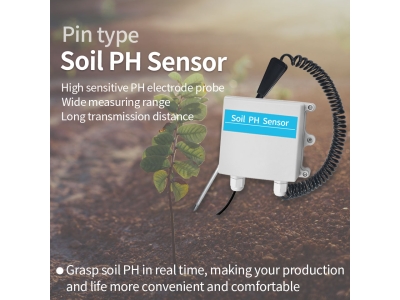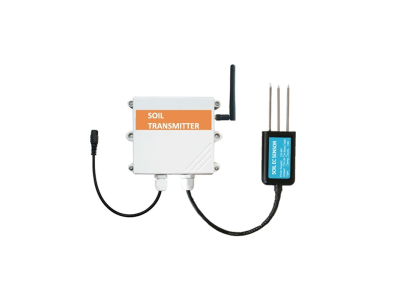Water scarcity and the need for sustainable water management practices have become pressing global concerns, particularly in the realm of agriculture. Agriculture accounts for a significant portion of global water consumption, and inefficient irrigation practices can lead to excessive water usage, environmental degradation, and economic losses. To address these challenges, innovative technologies such as soil sensors have emerged as smart solutions for optimizing irrigation efficiency and conserving water resources. This article explores the role of soil sensors in agriculture, their benefits, and their potential to revolutionize water conservation efforts.

Understanding Soil Moisture Dynamics
Efficient irrigation requires a thorough understanding of soil moisture dynamics. Traditionally, farmers relied on visual inspections or estimated water requirements based on weather conditions, leading to imprecise irrigation practices. However, soil sensors provide real-time data on soil moisture levels, enabling farmers to make informed decisions regarding irrigation scheduling and water application.
Soil moisture sensors are typically placed at various depths within the soil profile to monitor moisture content at different levels. These sensors use different techniques, such as capacitance, tensiometry, or time domain reflectometry, to measure soil moisture accurately. By tracking soil moisture levels, farmers can avoid over-irrigation, which can lead to leaching of nutrients and water wastage, or under-irrigation, which can result in crop stress and reduced yields.
Precision Irrigation Management
Soil sensors enable precision irrigation management by providing farmers with accurate, site-specific information on soil moisture conditions. This information allows for targeted irrigation, ensuring that water is applied only when and where it is needed most.
Using soil sensors in conjunction with irrigation systems equipped with automated controls, farmers can optimize irrigation schedules based on real-time soil moisture data. For example, if soil sensors indicate that the soil moisture level is below a certain threshold, the irrigation system can be automatically activated to provide the necessary amount of water. Conversely, if soil sensors detect adequate moisture levels, irrigation can be temporarily suspended, avoiding unnecessary water usage.
Precision irrigation management facilitated by soil sensors not only conserves water but also enhances crop productivity. By supplying the right amount of water at the right time, farmers can minimize water stress, improve nutrient uptake, and optimize plant growth, leading to higher yields and better-quality crops.
Efficient Water Resource Allocation
In addition to optimizing irrigation practices, soil sensors also contribute to efficient water resource allocation in agriculture. By providing accurate information on soil moisture levels, farmers can identify areas of their fields that may have higher or lower water-holding capacities. This knowledge allows for the strategic allocation of water resources, ensuring that water is distributed equitably across the entire field.
Soil sensors can also assist in detecting and addressing irrigation system inefficiencies, such as leaks or clogged emitters. By continuously monitoring soil moisture, farmers can identify irregularities in moisture distribution, enabling them to promptly rectify any issues and prevent water wastage.
Moreover, soil sensors can be integrated into advanced irrigation management systems that consider other factors, such as weather conditions and crop water requirements. These systems use sophisticated algorithms to optimize irrigation scheduling and inform farmers of the most efficient water allocation strategies.
Environmental Benefits
Efficient irrigation practices driven by soil sensors yield significant environmental benefits. By minimizing water usage, farmers can reduce the strain on local water sources, which are often under pressure due to increasing demands from various sectors.
Conserving water through optimized irrigation practices also helps maintain ecosystem balance. Excessive irrigation can lead to waterlogging, which depletes oxygen levels in the soil and negatively impacts plant growth. Conversely, inadequate irrigation can result in drought stress, affecting crop health and productivity. Soil sensors aid in striking a balance, ensuring that crops receive adequate water while reducing the risk of water-related stressors.
Furthermore, by minimizing water usage, farmers can decrease the need for groundwater extraction and reliance on energy-intensive irrigation methods. This reduces energy consumption and associated greenhouse gas emissions, mitigating the impact of agriculture on climate change.
Economic Considerations
Implementing soil sensors in agriculture offers economic benefits alongside environmental advantages. By optimizing irrigation practices and conserving water, far






